Just In
- 13 hrs ago

- 13 hrs ago

- 16 hrs ago

- 17 hrs ago

Don't Miss
- Sports
 Who Won Yesterday's IPL Match 41? SRH vs RCB, IPL 2024 on April 25: Royal Challengers Bangalore End Losing Streak
Who Won Yesterday's IPL Match 41? SRH vs RCB, IPL 2024 on April 25: Royal Challengers Bangalore End Losing Streak - Finance
 Bajaj Group Stock Declares Rs. 60/Share Dividend: Buy Ahead of Record Date On 28 June?
Bajaj Group Stock Declares Rs. 60/Share Dividend: Buy Ahead of Record Date On 28 June? - Movies
 TRP Report Week 16: Anupamaa, Jhanak BEAT Yeh Rishta Kya Kehlata Hai, Ghum Hai. Top 10 Shows List
TRP Report Week 16: Anupamaa, Jhanak BEAT Yeh Rishta Kya Kehlata Hai, Ghum Hai. Top 10 Shows List - News
 MEA Dismisses US Human Rights Report On Manipur As 'Biased And Misinformed'
MEA Dismisses US Human Rights Report On Manipur As 'Biased And Misinformed' - Automobiles
 Royal Enfield Unveils Revolutionary Rentals & Tours Service: Check Out All Details Here
Royal Enfield Unveils Revolutionary Rentals & Tours Service: Check Out All Details Here - Technology
 Elon Musk’s X Is Launching a TV App Similar to YouTube for Watching Videos
Elon Musk’s X Is Launching a TV App Similar to YouTube for Watching Videos - Education
 AICTE introduces career portal for 3 million students, offering fully-sponsored trip to Silicon Valley
AICTE introduces career portal for 3 million students, offering fully-sponsored trip to Silicon Valley - Travel
 Escape to Kalimpong, Gangtok, and Darjeeling with IRCTC's Tour Package; Check Itinerary
Escape to Kalimpong, Gangtok, and Darjeeling with IRCTC's Tour Package; Check Itinerary
Does Your Knee Creak When You Bend It?
Have you ever heard a crunching or a creaking kind of a sound when you bend your knee? If the answer to this is yes, then you surely might want to know how and why it happens.

Also, an important point that we all wish to know is if at all this creaking of the knee while bending is a matter of serious concern. Read on to know more about this ailment and how to deal with it.
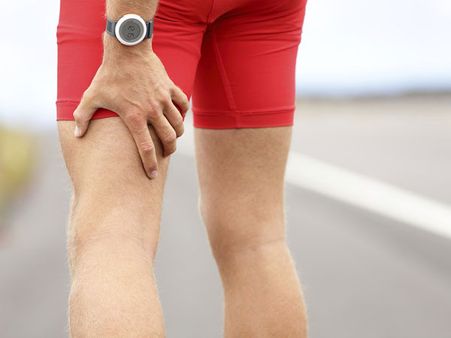
The Structure Of The Knee
The knee is the point where the femur joins with the tibia. A bone in the lower leg, the fibula is also connected at this point of the joint - at the knee. The kneecap, also known as the patella, is a convex, small bone that shields the joint and is positioned at the front of the knees.
Menisci is a cushion kind formed by two, thick pads of cartilage and gives a cushiony effect to the femur and the tibia. This cushion also helps in reducing friction at the meeting point. The joint is lubricated by a fluid-filled capsule known as synovium.
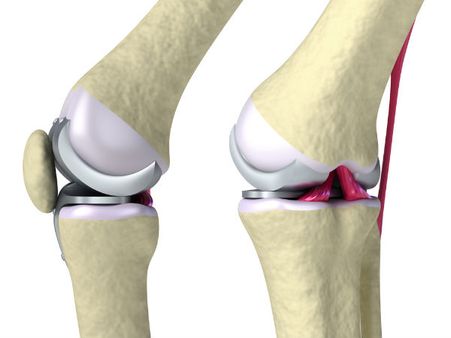
How Does Crepitus Occur?
The areas that surround the knee joint can have a certain amount of gas build up over time. This gas build-up creates tiny bubbles in the fluid present in the synovium. So, when you bend your knees, these bubbles burst producing a creaking sound that happens when the ligaments snap. This is quite normal to occur and might happen to people at some point of time or the other.
However,
the
ailment
that
can
increase
the
occurrence
of
crepitus
drastically
is
arthritis.
This
ailment
damages
the
bone
and
cartilage.
When
the
damaged
knee
is
moved
around,
such
as
when
you
bend
it,
the
knee
joint
moves
making
a
crackling
and
crunching
sound.
Crepitus
at
times
can
also
be
a
result
of
some
form
of
leg
or
knee
injury.
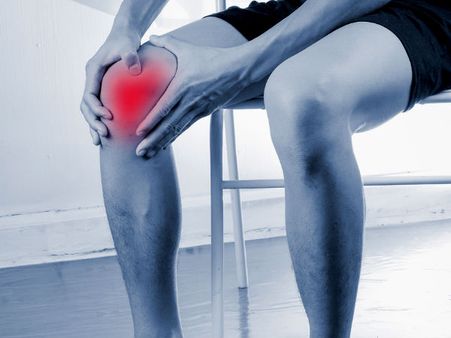
Should You Be Worried About Crepitus?
The occurrence of crepitus is not uncommon. Moreover, this is painless. In most of the cases, there is no need to worry about this occurrence, especially if it is found to be painless. However, if the crackling and popping sounds are accompanied by pain, then that could be an indication of an underlying problem.
One
of
the
common
symptoms
of
osteoarthritis
is
knee
crepitus.
This
can
also
be
a
sign
of
infectious
arthritis
or
rheumatoid
arthritis.
Sometimes,
it
is
the
result
of
various
kinds
of
knee
injuries.
If
your
knee
crackles
too
often
and
hurts,
then
it
is
time
to
see
a
doctor.

Arthritis And Crepitus
Osteoarthritis mainly affects people who are over the age of 65 years. This form of arthritis is also referred to as the ‘wear and tear' arthritis. This ailment typically affects the joints that are used more often in our daily lives. Weight-bearing joints such as knees and hips are the prime targets of osteoarthritis.
Biochemical changes along with mechanical stress is likely to gradually break the cartilage that gives a cushion-like effect to the joints. This causes inflammation and severe pain. With time, the cartilage gets destroyed and the bones begin to grind together. In such situations of osteoarthritis, crepitus is accompanied by pain.
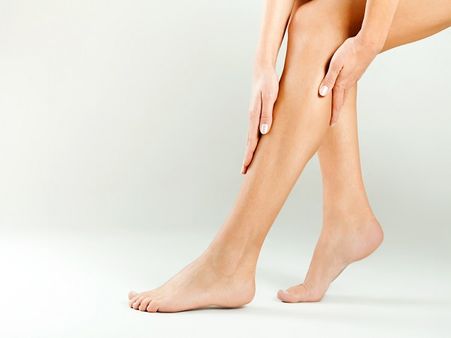
General Medical Causes Of Crepitus
Apart from osteoarthritis, below are some of the other causes of crepitus.
•
Meniscus
tear:
This
kind
of
knee
injury
can
cause
crepitus.
This
injury
is
common
in
people
involved
in
sports.
When
the
joint
moves,
crepitus
is
found
to
occur.
•
Chondromalacia
patella:
This
is
a
kind
of
dull
ache
that
occurs
behind
the
kneecap.
This
is
usually
caused
due
to
injury
or
overuse.
In
this
kind
of
an
ailment,
the
undersurface
cartilage
that
covers
the
kneecap
is
damaged.
•
Patellofemoral
syndrome:
This
is
also
called
runner's
knee.
This
ailment
is
caused
when
there
is
a
force
overload
on
the
patella.
This
usually
happens
prior
to
any
actual
damage
to
the
patella's
joint
surface.
This
ailment
can
worsen
and
lead
to
chondromalacia
patella.
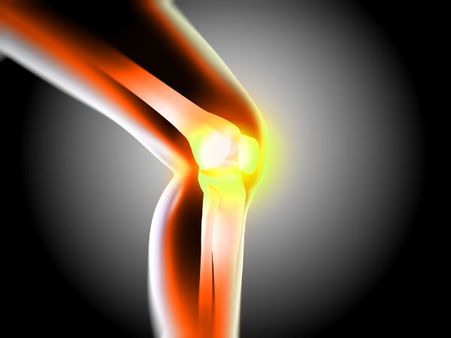
How To Treat Crepitus?
If it's painless, crepitus requires no treatment as it is not caused by any disease. However, if pain accompanies the knee crackling and creaking, then the underlying cause needs to be taken care of by a doctor.
If it is due to osteoarthritis, then your doctor might prescribe nonsteroidal anti-inflammatory drugs. Applying ice packs can help in reducing the inflammation. A brace is recommended to help your knee rest. To promote mobility and to strengthen the knee muscles, physical therapy is recommended.
-
 health4 Common Myths About Arthritis Debunked!
health4 Common Myths About Arthritis Debunked! -
 healthYour Kitchen Holds the Secrets to Winter Knee Pain Relief
healthYour Kitchen Holds the Secrets to Winter Knee Pain Relief -
 diet fitnessWomen Have A Higher Risk Of Knee Injuries Than Men
diet fitnessWomen Have A Higher Risk Of Knee Injuries Than Men -
 disorders curePseudogout: Causes, Symptoms, Diagnosis And Treatment
disorders curePseudogout: Causes, Symptoms, Diagnosis And Treatment -
 body careQuick Remedies To Get Rid Of Dark Knees
body careQuick Remedies To Get Rid Of Dark Knees -
 wellnessSecret To Have Healthy Pain-free Knees Revealed!
wellnessSecret To Have Healthy Pain-free Knees Revealed! -
 newsBengaluru Doctor Conducts More Than 1000 Minimally Invasive Knee Replacements
newsBengaluru Doctor Conducts More Than 1000 Minimally Invasive Knee Replacements -
 diet fitnessHow Anti-gravity Treadmill Helps You Post Knee Surgery
diet fitnessHow Anti-gravity Treadmill Helps You Post Knee Surgery -
 disorders cure3 Kitchen Ingredients To Reduce Knee Pain Quickly
disorders cure3 Kitchen Ingredients To Reduce Knee Pain Quickly -
 diet fitnessJogging Reduces Risk Of Hip & Knee Joint Pain
diet fitnessJogging Reduces Risk Of Hip & Knee Joint Pain -
 wellnessObese? Weight Loss May Prevent Knee Joint Degeneration
wellnessObese? Weight Loss May Prevent Knee Joint Degeneration -
 wellnessHow To Make Your Knees Strong
wellnessHow To Make Your Knees Strong


 Click it and Unblock the Notifications
Click it and Unblock the Notifications



